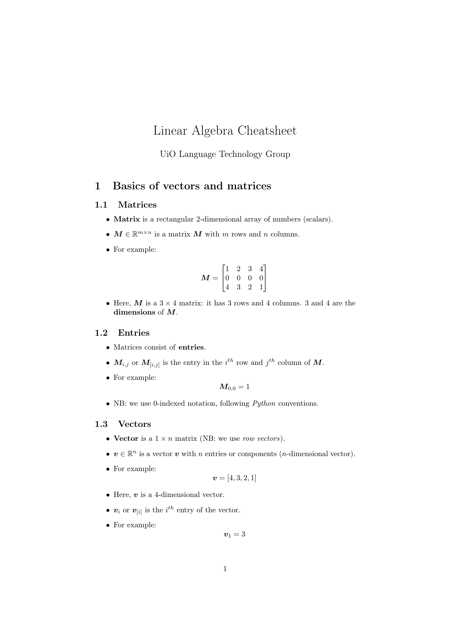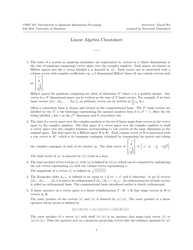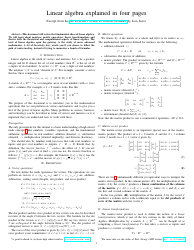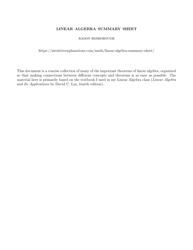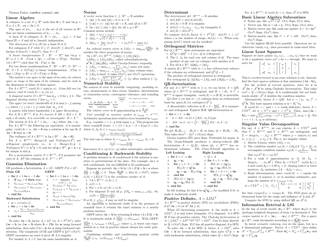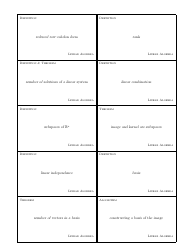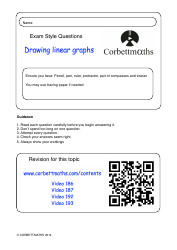Linear Algebra Cheatsheet - Uio Language Technology Group
The Linear Algebra Cheatsheet by Uio Language Technology Group is a document that provides a summary of key concepts, formulas, and techniques used in linear algebra. It serves as a quick reference guide for students and professionals studying or working in fields such as mathematics, computer science, engineering, and data analysis.
FAQ
Q: What is linear algebra?
A: Linear algebra is the branch of mathematics that deals with vector spaces and linear equations.
Q: What are vector spaces?
A: Vector spaces are mathematical structures that consist of vectors and obey certain algebraic properties.
Q: What are linear equations?
A: Linear equations are equations that involve only linear terms and can be represented by a system of linear equations.
Q: What is the dot product?
A: The dot product is a mathematical operation that takes two equal-length sequences of numbers (usually coordinate vectors) and returns a single number.
Q: What is a matrix?
A: A matrix is a rectangular array of numbers, symbols, or expressions, arranged in rows and columns.
Q: What is matrix multiplication?
A: Matrix multiplication is an operation that combines two matrices to produce another matrix. It is different from the element-wise multiplication.
Q: What is the determinant of a matrix?
A: The determinant of a matrix is a scalar value that can be computed from the elements of a square matrix and provides important information about the matrix.
Q: What is an eigenvalue?
A: An eigenvalue is a scalar value that represents a scaling factor in a linear transformation.
Q: What is an eigenvector?
A: An eigenvector is a non-zero vector that only changes by a scalar factor when a linear transformation is applied to it.
Q: What is the rank of a matrix?
A: The rank of a matrix is the maximum number of linearly independent columns or rows in the matrix.
Q: What is the inverse of a matrix?
A: The inverse of a matrix is the matrix that, when multiplied by the original matrix, yields the identity matrix.
